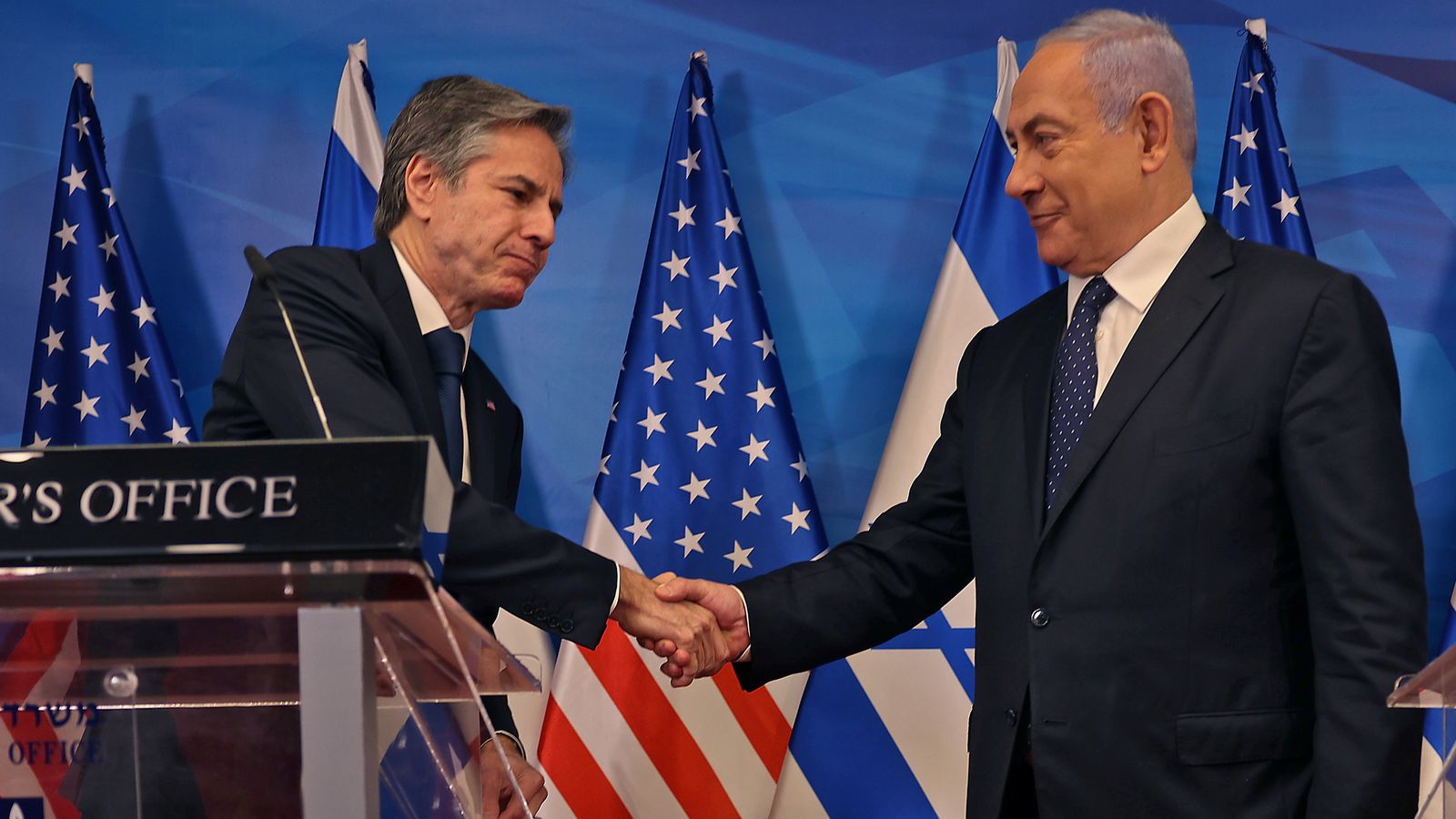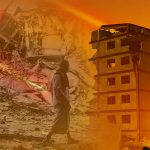US Secretary of State Antony Blinken has said America will reopen its consulate in Jerusalem – as he also pledged to rally international support to rebuild Gaza.
The consulate’s reopening will restore ties with Palestinians, which were downgraded under President Trump’s administration.
Mr Blinken said it would be “an important way for our country to engage with and provide support to the Palestinian people”. He did not specify a date for its reopening.
The secretary of state – who is visiting the region in an attempt to shore up last week’s Israel-Hamas ceasefire – said he had witnessed “a grave humanitarian situation” in Gaza.
The Biden administration is now set to provide an extra $75m (£53m) in development and economic assistance for Palestinians this year, $5.5m in immediate disaster relief for Gaza, and $32m to the UN Palestinian aid agency.
The 11 days of fighting between Israel and Hamas killed more than 250 people, the vast majority in Gaza, and caused widespread destruction in the impoverished territory.
Friday’s truce has so far held, but it did not address any of the underlying issues, something Mr Blinken acknowledged after a meeting with Israeli Prime Minister Benjamin Netanyahu.
Please use Chrome browser for a more accessible video player
He said: “We know that to prevent a return to violence, we have to use the space created to address a larger set of underlying issues and challenges. And that begins with tackling the grave humanitarian situation in Gaza and starting to rebuild.
“The United States will work to rally international support around that effort, while also making our own significant contributions.”
But he added that the US would work with its partners “to ensure Hamas does not benefit from the reconstruction assistance”.
The US closed its consulate general in Jerusalem – which covered Palestinian affairs – in March 2019 during the Trump presidency, folding its operations into the new Israeli embassy in the city.
The consulate had served as a de facto embassy covering diplomatic relations with the Palestinians and its closure infuriated many – who view east Jerusalem as occupied territory and the capital of their future state.
Mr Blinken will not be meeting Hamas during his visit as the militant group does not recognise Israel’s right to exist and is considered a terror organisation by the US.
Please use Chrome browser for a more accessible video player
But the secretary of state addressed the larger conflict, saying: “We believe that Palestinians and Israelis equally deserve to live safely and securely, to enjoy equal measures of freedom, opportunity and democracy, to be treated with dignity.”
America’s top diplomat faces the same obstacles that have long stifled the peace process, including a hawkish Israeli leadership, Palestinian divisions and deeply rooted tensions surrounding Jerusalem and its holy sites.
Before the violence started, the Biden administration had hoped to avoid being drawn into the conflict and focus on other foreign policy priorities.
Ahead of Mr Blinken’s visit, Mr Netanyahu had warned his country’s response would be “very powerful” if Hamas broke the current ceasefire.
Mr Netanyahu, who is fighting for his political life after a fourth inconclusive election in two years, faces mounting criticism from Israelis who say he ended the offensive prematurely, without forcibly halting rocket attacks or dealing a heavier blow to Hamas.
The prime minister hardly mentioned the Palestinians in his remarks but spoke of “building economic growth” in the occupied West Bank.
However, he added there would be no peace until the Palestinians recognised Israel as a “Jewish state”.
The Palestinians have long objected to that language, saying it undermines the rights of Israel’s own Palestinian minority.
The 11 days of fighting was triggered by weeks of clashes in Jerusalem between Israeli police and Palestinian protesters in and around Al-Aqsa Mosque compound, as well as Palestinians facing eviction by Jewish settlers in the city’s Sheikh Jarrah neighbourhood.
Evictions were put on hold just before the Gaza fighting started, but the legal process is set to resume in the coming weeks.
Adding to the tensions, an Israeli soldier and a civilian were stabbed and wounded in East Jerusalem on Monday before police shot and killed the assailant in what they described as a terrorist attack.
Then, early on Tuesday, a Palestinian man was shot and killed by Israeli forces near the West Bank city of Ramallah, according to the Wafa news agency.
Mr Blinken also travelled to Ramallah on Tuesday to meet Palestinian President Mahmoud Abbas, who has no power in Gaza and was sidelined by recent events.
Mr Abbas heads the internationally-backed Palestinian Authority (PA), which administers parts of the occupied West Bank but whose forces were driven from Gaza when Hamas seized power in 2007.
Mr Abbas, who called off the first Palestinian elections in 15 years last month when it appeared his fractured Fatah movement would suffer an embarrassing defeat, is seen by many Palestinians as having lost all legitimacy.
But internationally he is still seen as the representative of the Palestinian people and a key partner in the long-defunct peace process.
The Palestine Liberation Organisation, the umbrella group led by Mr Abbas, recognised Israel decades ago, and the PA maintains close security ties with Israel.






















